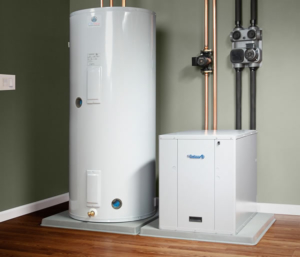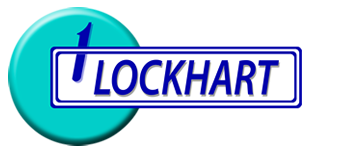Here’s How to Check the Health of Your New-To-You HVAC System
Purchasing a new home can be an exciting venture for your growing family.
With all of the moving pieces happening during purchase, it can be easy to forget about the current HVAC system in place at the house you just bought.
After all, there will be a lot of other aspects you’ll be focusing your attention on, like where to put your furniture, making sure your utilities are connected and what type of landscaping or interior finishing you may want to do in the months ahead.
Although a home inspector can pick up on potential problems, sometimes that may not be the case. Their inspection might be surface level, and issues with your inherited HVAC system could be deeper.
But, what is an HVAC system, and what does an HVAC inspection entail? More importantly, how do you repair it and when should you replace the system?
What is an HVAC System?
HVAC stands for heating, ventilation, and air conditioning systems. This is what heats your home during the winter, and cools your home during the summer.
Over 60-70% of the cost of owning your new home goes towards heating and cooling, so it’s important to make sure your HVAC system is working at peak efficiency.
HVAC systems can include products such as:

- Furnaces
- Air conditioners
- Ductwork
- Thermostats
- As well as other home comfort controls
According to Energy Star, switching to a smart thermostat can save $50 or more a year on energy bills. You can potentially save hundreds of dollars in energy costs by upgrading to a more energy-efficient HVAC system.
While you can do a visual inspection yourself, it’s a good idea to hire a professional for a thorough inspection of your HVAC system.
What To Expect During An HVAC Inspection
When your HVAC system is dirty or in poor repair, it needs to work harder to maintain home comfort levels. This requires more energy and leads to costly energy bills.
Over time, wear, dirt, and weather can dramatically affect the condition of your HVAC system. Regular HVAC inspections will boost your system’s efficiency by locating potential problems within your systems.
During an inspection, your technician will keep you up-to-date on the age, condition, and potential upgrades available for your HVAC system. This will ensure your heating and cooling are working efficiently.
Your technician will inspect all of the parts of your HVAC system and make sure they’re clean and in good condition.
Preventative maintenance, such as changing air filters, cleaning ducts, and inspecting for warning signs can go a long way in extending the life of your HVAC system.
Typically, simple cleaning and maintenance can be done immediately. However, if larger jobs are needed such as duct cleaning, this may require additional appointments.
Before anything is done, your technician will keep you updated every step of the way.
How Much Does An HVAC Inspection Cost?
Just like anything home-related, prices will vary and depend on multiple factors. The make/model you have, how long it’s been since your last inspection, age of the system and size of your home can all impact the cost.
While it can carry a small upfront cost, an inspection and tune-up will save you much more in the future.
Some of the more common repairs you can avoid from preventative maintenance include a blown capacitor, failed compressor, or a clogged drain line.
Whether your system is newer and still under warranty, or over 10 years old, routine maintenance will extend the life of your system. Catching small problems before they become costly repairs will save you a headache in the future.
Remember, prevention is key!
HVAC Inspection Checklist
Ultimately, the goal of an HVAC inspection is to determine whether or not your HVAC is meeting your home’s comfort needs. Your system’s efficiency relies on the condition, installation, quality, and size of the appliances in your home.
If your current HVAC system wasn’t sized properly, or it simply cannot meet the needs of your home, it will consume excess energy. This will leave you with higher energy bills and an uncomfortable house.
Here’s a quick checklist of a typical inspection:
- Refrigerant level and pressure checks
- Thermostat calibration
- Electrical system inspection
- Evaporator coil and condensate drain cleaning
- Indoor air quality check
- Vents and flues are clean, undamaged, and vent properly outdoors
- Cleaning and inspection of condenser, outdoor disconnect, fan motor, and blades
In most cases, cleaning, lubrication, and minor repairs are all that’s needed. However, if your system is aging or improperly sized, your technician will let you know. Find a more detailed HVAC checklist here.
But what happens when your current systems are beyond repair?
Replacing Your HVAC System
Basically, you should replace your system when it needs frequent repairs or when it suffers from poor performance.
If your energy bills have risen too high, that’s a good sign to replace your HVAC system.
Replace your air conditioner if it’s over 10 years old, or if it’s rated 10 SEER or less. SEER measures energy efficiency. The higher the number, the better.
Replace your furnace if it’s over 15 years old, or if it’s rated 80% AFUE or less. AFUE measures efficiency in converting heat to energy. Anything lower than that percentage is considered mid to low-efficiency.
If you do decide to replace your system, the cost can vary due to several factors. Location, home size/construction, ductwork, and project difficulty can affect the installation price.
With our easy financing solution, you can start planning your new HVAC system sooner than you may think.
By utilizing Financeit, you can:
- Make additional payments any time without penalty
- Choose from a 7.99% to 11.99% interest rate
- Pay one small fee added to the loan amount
- Avoid hidden fees or charges
- Trust bank-level encryption that ensures personal information is protected
Finding the Right HVAC Solution
The best way to keep your HVAC system running at peak efficiency is to schedule regular maintenance.
Schedule tune-ups twice a year. Before summer and winter at your convenience.
Remember, a well-serviced HVAC system is the best defense against burnouts and breakdowns. Avoid failure at the worst possible time!
At Lockhart Industries, we’ve been proudly serving happy customers since 1976. Whether you’re inquiring about regular maintenance or investing in a new HVAC system, our dedicated professionals will find the right solution that fits your home and budget. To learn more, please contact us for expert service in South Vancouver Island.
Call (250) 748-1731 or request an estimate and get started today.
Easy Financing with…
Start Saving Money NOW! There’s no need to putting off a more Energy Efficient, Cost Effective home comfort system. We make it simple!
With Financeit you can:
- Make additional payments any time without penalty.
- Get a lower payment by choosing an amortization period of up to 180 months. 7.99% to 11.99% interest rate.*
- We add a small fee to the loan amount. There are no hidden or additional charges
- Bank-level encryption (AES-256 bit SSL) to protect your personal information.



